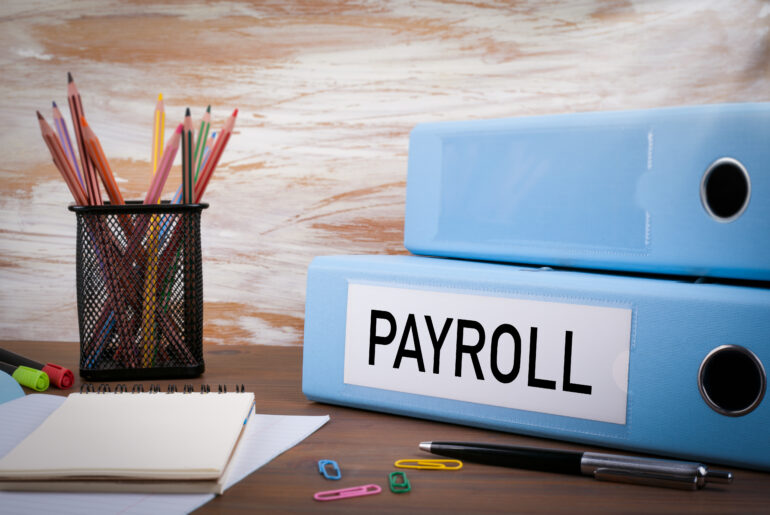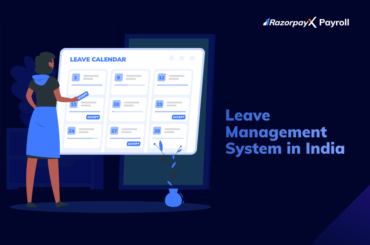There are some typical payroll questions that HRs have to navigate repeatedly, especially when onboarding new employees.
Employees bombard them with questions like: What is my in-hand salary? What is my gross salary? How can I claim my PF? …the list goes on.
In this blog post, we answer the most common payroll questions asked by employees along with tips to manage payroll effectively. Read on and become an expert at everything related to payroll.
Table of Contents
7 payroll/salary structure questions asked by employees
1. What are the different components of salary structure in India?
Employees’ salaries are made up of several components, including a base salary, allowances, perks, bonuses, etc. Let’s understand these components in detail:
-
Basic Salary
The basic pay is a fixed portion that forms 35-50% of an employee’s total salary. It is the amount before any bonus, overtime, or allowance is deducted or added to the salary.
The basic pay varies with different industries standards and titles. It’s used to calculate the majority of the other components, such as allowances and is entirely taxable.
-
Allowances
Employees are paid monthly allowances and these may be partially or entirely taxed. The allowances offered and the limits on them vary from company to company.
- Dearness Allowance – It’s a proportion of an employee’s basic wage that is paid to mitigate the impact of inflation. It is paid by the government to public sector employees and pensioners only.
- House Rent Allowance – It’s a portion of an employee’s salary that is paid to cover the costs of renting a home. It provides tax benefits to employees and is available to salaried individuals who live in rented housing. They can use it to lower their tax liability.
- Leave Travel Allowance – It’s a type of allowance provided by employers to cover employee travel expenses when they are on leave.
- Conveyance Allowance – Also known as transportation allowance, it’s the compensation paid by businesses to their employees for covering commuting expenses to the office. Please see the note at the end of the next point.
- Medical Allowance – A fixed sum given to an employee to cover their medical expenses.
Note: Both medical and conveyance allowances were made redundant by the introduction of a standard deduction in the Finance Act, 2018, and should no longer be used.
-
Gratuity
It’s a one-time payment made by an employer to the employee who is leaving the company. Gratuity is given in appreciation for the services provided by the employee throughout their tenure.
The Payment of Gratuity Act of 1972 states that an employee is qualified for gratuity if he has worked for the same company for at least five years.
-
Employee Provident Fund/PF or EPF
Employee Provident Fund is a benefit plan in which both, the company and employees invest each month. It’s a savings account that allows employees to save a percentage of their pay each month. Withdrawals are possible after a month from the date of departure or retirement.
You can take partial money out before you retire, but only in certain situations like medical emergency, house loan/purchase/construction, and higher education.
Owing to the current pandemic there have been changes in the PF withdrawal rule to support individuals facing financial difficulties.
-
Perquisites or Perks
Perquisites, often known as fringe benefits, are perks that some employees receive as a result of their job title. These are usually non-cash perks that are given in addition to a monetary reward.
For instance, things like a personal car, rent-free accommodation, payment of a personal accident insurance premium, etc. Perquisites’ monetary value is added to the employee’s paycheck and the employee is responsible for paying tax on them.
Usually, the HRs document methods and processes to avail these benefits in a company.
-
Variable Pay
It’s the component of salary that’s determined by employee performance. When the employees achieve or exceed their pre-determined targets or goals, it’s paid to them as a type of performance bonus or incentive.
As the name suggests, it’s not fixed and depends on employees’ and the company’s performance
2. What is the difference between gross pay/CTC and net pay/ in-hand/take home pay?
Gross pay or CTC is the sum of all the components specified in your offer letter including deductibles that do not come into employees’ hands. It includes non-monetary incentives such as free food or membership to a gym.
Net pay or in-hand salary is the amount deposited in your account after deducting taxes, reimbursable components, EPF, and gratuity.
Read more about CTC vs take home salary here.
3. What are my flexible benefit components?
In India, a flexible benefit plan allows employees to establish and modify CTC components based on transportation, phone bills, and other work related expenses. An employee is able to claim tax exemption for these expenses after providing proof like bill receipts to their employer.
Read more about Flexible Benefit Plan (FBP) Component in salary structure.
4. What is the standard deduction? What documentation must I submit to claim the standard deduction?
The Indian government has introduced a provision of standard reduction to provide tax relief to salaried employees and pensioners. According to it, all salaried employees are entitled to a standard deduction of Rs.50000 (starting in FY 2020-21). To claim the standard deduction, no documentation is required.
5. When will I receive my salary and what happens if my payday is a holiday?
This answer will be determined by how your company handles payroll. Usually, there is a fixed day when employees get their salary and it’s generally, last working day of the month.
In the case of holidays, employees will receive their paychecks after the holiday if the company processes payroll normally, and before the holiday if it processes payroll early.
6. What is the difference between Form 16 and Form 16A?
Form 16 is your salary TDS (tax deducted at source) certificate that states the details of tax deducted by the employer to deposit to the Income Tax Department.
Form 16A is also a TDS certificate but in this case, the TDS is on non-salary earnings. For instance, TDS deducted on rent receipts, fixed deposits, etc.
7. What happens to my gratuity eligibility and payment if I leave a firm before five years?
Under the existing gratuity rules, employees are eligible for gratuity only if they have completed 5 continuous years of service with a single employer. This condition does not apply if the employee dies or becomes disabled while in service. In case of the death of an employee, the gratuity will be paid to the nominee.
Best Practices to Proactively Manage Employee Payroll Questions
Although we have answered the classic payroll questions asked by employees, you shouldn’t be stopping the work you’re doing and answering mundane questions. There should be a better way to deal with it.
Well, there is.
An employee self-service portal or HRMS software empowers employees to get all the answers they need with a few clicks. They can simply log in to the portal and get information related to
- latest documents and forms
- payroll or payslips
- tax declaration
- leaves and other perks
All the information is available to employees 24/7, which improves the company’s overall efficiency. HRs can share the latest updates or announcements on the portal, individual or organisation-wide.
RazorpayX Payroll: The Best HRMS and Payroll Software in India
RazorpayX Payroll is the new-age HRMS software that automates end-to-end HR processes, simplifies administrative tasks, and provides actionable insights.
In-built with automated compliances, it lets you calculate payroll taking into account compulsory filings such as PF, ESI, and TDS, and disburse salaries in just a few clicks.
Take RazorpayX Payroll for a Spin!





